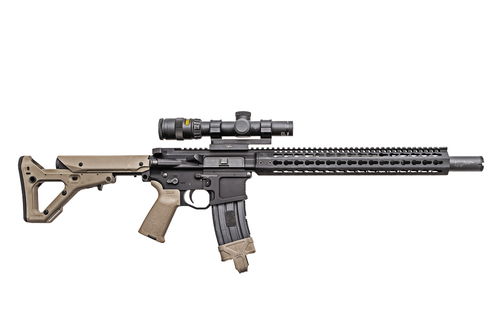Ar-15 Forward Grip: A Comprehensive Guide
The AR-15 forward grip is an essential component of the AR-15 rifle, providing both comfort and functionality. In this article, we will delve into the various aspects of the AR-15 forward grip, including its history, types, materials, and how it affects shooting performance.
History of the AR-15 Forward Grip

The AR-15 forward grip has a rich history that dates back to the early 1960s. The original design was created by Eugene Stoner, the father of the AR-15 rifle. The grip was initially designed to be a simple, ergonomic handle that allowed for a secure hold on the rifle. Over the years, the design has evolved, with various manufacturers offering their own versions of the AR-15 forward grip.
Types of AR-15 Forward Grips

There are several types of AR-15 forward grips available on the market, each with its own unique features and benefits. Here are some of the most popular types:
-
Standard Grip: The standard grip is the most common type of AR-15 forward grip. It is typically made of polymer and features a simple, ergonomic design.
-
Textured Grip: Textured grips provide increased grip and control, especially in wet or muddy conditions. They are often made of rubber or other durable materials.
-
Angled Grip: Angled grips are designed to provide a more comfortable and natural shooting position. They are often used by shooters who prefer a higher grip on the rifle.
-
Compensator Grip: Compensator grips are designed to reduce recoil and improve accuracy. They often feature a built-in compensator that helps to counteract the rearward force of the bullet.
Materials Used in AR-15 Forward Grips

The materials used in AR-15 forward grips can vary widely, depending on the manufacturer and the intended use of the grip. Here are some of the most common materials:
-
Polymer: Polymer is the most common material used in AR-15 forward grips. It is lightweight, durable, and easy to clean.
-
Rubber: Rubber is another popular material for AR-15 forward grips. It provides a good grip and is often used in textured grips.
-
Metal: Some manufacturers use metal for their AR-15 forward grips, particularly for compensator grips. Metal is durable and can provide additional weight to help counteract recoil.
How the AR-15 Forward Grip Affects Shooting Performance
The AR-15 forward grip plays a crucial role in shooting performance. Here are some ways in which the grip can impact your shooting:
-
Comfort: A comfortable grip is essential for long-range shooting. A well-designed grip can help reduce hand fatigue and improve overall shooting comfort.
Choosing the Right AR-15 Forward Grip
Selecting the right AR-15 forward grip depends on your individual needs and preferences. Here are some factors to consider when choosing a grip:
-
Material: Consider the material that will best suit your needs, whether it’s polymer, rubber, or metal.
-
Design: Choose a design that provides the level of comfort and control you need. Some shooters prefer a standard grip, while others may prefer an angled or compensator grip.
-
Price: Forward grips can vary widely in price, so consider your budget when making your selection.
Top AR-15 Forward Grips on the Market
Here are some of the top AR-15 forward grips available on the market:
| Brand | Model | Material | Price |
|---|---|---|---|




